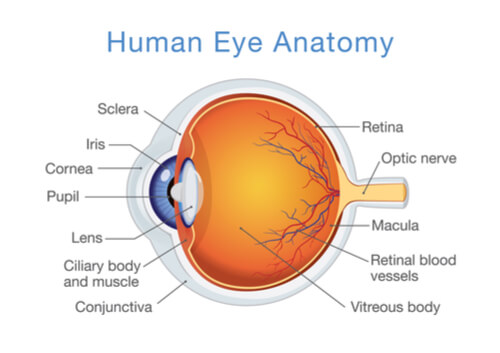
Eye conditions are far more common than you may realize. Even if you’ve had good vision your whole life, you can still develop an eye condition, especially as you age.
You can treat certain age-related eye conditions like cataracts by undergoing cataract surgery. However, conditions affecting the retina can cause permanent vision loss.
This is why staying on top of your retina health and knowing when you should see a retina specialist is essential. Keep reading to learn about 5 signs you may need to see a retina specialist.
The Necessity of Healthy Retinas

To understand why retina health is crucial to vision, you need to understand what the retina does. The retina is the thin membrane that lines the back of the eye.
This membrane contains special cells called photoreceptors. When light passes through your eye, these photoreceptors are activated and send impulses to your brain, which can convert the impulses into images.
The retina is fragile and delicate, and several conditions and diseases can damage it. Damage to the retina can destroy photoreceptors.
These cells do not regenerate, so any damage to the retina is permanent and irreversible. If there is enough damage to the retina, this impacts your vision. Any vision loss caused by retina damage is irreversible.
Because you cannot repair damage to the retina, it’s vital to have any retinal conditions and other causes of damage identified as early as possible. There are ways to prevent further vision loss, but these treatments rely on early detection.
To save yourself from vision loss, look out for these 5 signs that you may need to see a retina specialist:
1. Straight Lines Appear Wavy
One common condition that can affect the retina is age-related macular degeneration (AMD). The macula is at the center of the retina.
Due to aging, it can become too thin and break down. One of the earliest signs of age-related macular degeneration is that straight lines begin to appear wavy.
If you experience this symptom, you should see a retina specialist as soon as possible. Treatment for certain forms of age-related macular degeneration is limited.
However, early detection and intervention can still help slow down the progression of the eye condition. Your retina specialist can monitor the eye condition and recommend an AREDS 2 nutritional supplement regimen that may strengthen your macula and help reduce your risk of developing age-related macular degeneration.
2. Your Vision is Very Blurry and Quickly Getting Worse

Blurry vision can be a symptom of several eye conditions. However, if you notice blurry vision happening rapidly, it’s often a sign that something is wrong with your retina.
The cause may be a macular edema or a hole in the macula. A macular edema occurs when the macula becomes swollen.
It may also be the result of a retinal tear or detachment. Retinal tears and retinal detachments occur when the gel that fills your eye, called the vitreous, tugs on the retina and damages it.
These retinal conditions are all severe and require immediate medical intervention to prevent permanent vision loss. If you suddenly notice blurry vision, it’s best to seek emergency treatment.
If you show signs of these retinal conditions, an emergency room doctor will likely refer you to a retina specialist. The specialist may then be able to perform surgery to save your vision.
3. Your Eyes Hurt
If you notice eye pain along with a headache and blurry vision, this is likely a sign of a retinal tear or detachment. You may also feel nauseous.
These combined symptoms are a clear sign that you need immediate medical care and should seek emergency treatment. If you go to the emergency room, your doctor will likely refer you to a retina specialist for care and follow-up.
4. You’re Seeing a Lot of Floaters and Flashes of Light
Seeing floaters and flashes of light is normal and especially common in older patients. If you suddenly start seeing many new floaters and flashes, it can signify a retinal tear.
In such cases, you should seek emergency medical care. However, if you slowly start noticing more floaters and flashes of light, you should see a retina specialist to ensure your retina is healthy.
Particles in the vitreous cause floaters, which you can see in your field of vision. You can treat floaters with a vitrectomy.
A vitrectomy is a procedure that removes part of the vitreous. If you have normal floaters, this procedure isn’t necessary to preserve your vision.
However, a vitrectomy can be helpful for patients who find their floaters particularly bothersome.
5. You’re at High Risk for Retinal Eye Conditions
Even if you show no signs of retinal conditions, you should see a retina specialist if you’re at an increased risk for developing a retinal condition. Your risk of developing retinal eye conditions increases if:

- You are over 50
- You have a family history of retinal conditions
- You have had previous retinal tears or detachments
- You have diabetes
- You have been diagnosed with high blood pressure (hypertension)
- You’re a smoker
- You are very nearsighted
Seeing a retinal specialist before developing a retinal condition ensures that you’ll receive the earliest diagnosis and treatment if you have one. Eye exams with your ophthalmologist are the best preventative measure for diagnosing eye conditions and treating them, including retina conditions.
Do you need to prioritize your eyes? Schedule an appointment at St. Luke’s at The Villages in Lake Sumter Landing, FL, today! There’s no time like the present to start!









